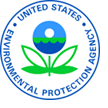Newsroom
All News Releases By Date
EPA Issues Record of Decision for the Madison County Mines Superfund Site Operable Unit 5
Release Date: 09/27/2012
Contact Information: Ben Washburn, (913) 551-7364, [email protected]
Environmental News
FOR IMMEDIATE RELEASE
 (Kansas City, Kan., Sept. 27, 2012) - EPA Region 7 today issued the Record of Decision (ROD) for the Madison County Mines Superfund Site Operable Unit 5, Catherine Mines and Skaggs Tailings subsites, located in Madison County, Mo. The ROD identifies the selected cleanup methods for the mine waste located at the site.
(Kansas City, Kan., Sept. 27, 2012) - EPA Region 7 today issued the Record of Decision (ROD) for the Madison County Mines Superfund Site Operable Unit 5, Catherine Mines and Skaggs Tailings subsites, located in Madison County, Mo. The ROD identifies the selected cleanup methods for the mine waste located at the site.
The overall strategy of the selected remedy is to cover consolidated mine waste, soils, and sediment with low-permeable caps at each subsite.
The major components of the selected remedy include:
- Excavate or grade mine waste, sediments, and soils to meet the respective preliminary remediation goals.
- Consolidate mine waste in common locations for each subsite.
- Grade and contour the soil repositories and construct drainage systems that will effectively control precipitation runoff to prevent erosion.
- Construct a cap at each repository to consist of 12 inches of clay, six inches of topsoil cover, and vegetation.
- Install a monitoring well network consisting of a minimum of four wells at each subsite for groundwater sampling to monitor characteristics of groundwater quality and migration.
- Establish environmental covenants through agreements with property owners to prevent activities that could disturb or damage the remedy resulting in exposure to mine waste and prevent consumptive use of groundwater.
The contaminant of concern at the Madison County Mines Superfund Site is lead from historic mining and ore processing activities. Lead is a highly toxic metal that was also commonly used in paint until lead-based paint was banned in 1978.
The site was listed on the National Priorities List (NPL) on Sept. 29, 2003. The NPL is the list of national priorities among the known releases or threatened releases of hazardous substances, pollutants, or contaminants throughout the United States and its territories.
Learn more about EPA’s Superfund Program
Learn more about lead
Connect with EPA Region 7 on Facebook: www.facebook.com/eparegion7
 View selected historical press releases from 1970 to 1998 in the EPA History website.
View selected historical press releases from 1970 to 1998 in the EPA History website.

